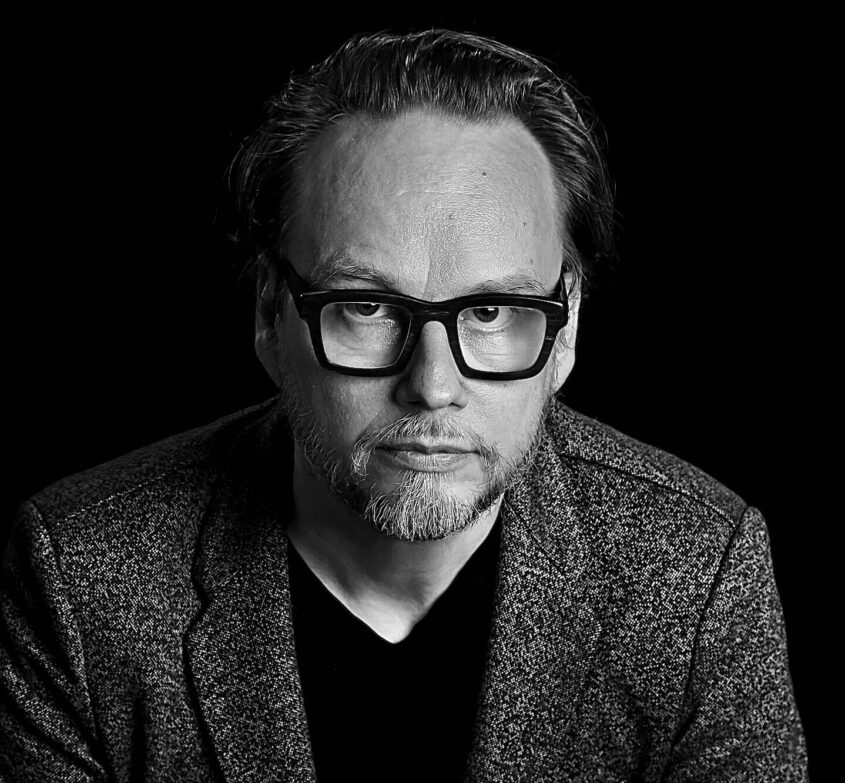Matthias Haenisch is a higher education and science manager, festical director, creativity researcher and university lecturer working in the fields of postdigital learning cultures, artificial creativity and transcultural education.
He is currently Chief of Staff at Akkon University of Human Sciences, where he als heads the Akkon Professional School, the university’s programme development and quality management, the digitalisation department, people management and the President’s Office. Previously, he was Vice President for Academic Affairs at Clara Hoffbauer University of Applied Sciences Potsdam, where he also co-directed the Music Education programme and taught courses in Cultural Studies and Anthropology in the Social Work and Childhood Education programmes.

Since 2015 he has been CEO, Co-Curator and Artistic Director of Berlin based LABOR SONOR Festival for transdisciplinary artistic research, promoting the exchange between and integration of science, humanities and the arts. In this experimental environment, works by Alex Arteaga, Joanna Bailie, Brandon LaBelle, Frank Bretschneider, Kaffe Matthews, Matteo Fargion, Christian Kesten, Felix Kubin, Kyoka, Yan Jun, Grischa Lichtenberger, Andrea Neumann, Nile Koetting, Lito Walkey, Takako Suzuki, Les Reines Prochaines, Tara Transitory & Nguyen Baly, Makiko Nishikaze, Antonia Baehr, Sabine Ercklentz, Raed Yassin and others were presented.
Matthias was co-founder and member of the joint research project ›MusCoDA – Musical Communities in the (Post)Digital Age‹, which investigates songwriting processes as an example of collective creativity in (post)digital communities (University of Erfurt, Paderborn University; funded by the Federal Ministry of Education and Research; term: 2020-2024).
He was also co-founder and member of the joint research project ›MuBiTec – Music Education with Mobile Technologies‹, where he was involved in the subprojects ›LINKED – Musical Education in Postdigital Communities‹ and ›LEA – Learning Processes and Aesthetic Experiences in App Music Practice‹ (University of Cologne, University of the Arts Berlin, University of Erfurt, University of Lübeck, Nord University Bergen; funded by the Federal Ministry of Education and Research; term: 2017-2021).
Since 2018 he has been working as a lecturer in Transcultural Musicology and Historical Anthropology of Music at the Department of Musicology and Media Studies at Humboldt University and in Cultural Sociology at Humanistische Hochschule Berlin. From 2011 to 2017 he worked as a research and teaching associate at the Department of Music and Music Education at University of Potsdam, where he taught performance studies, popular music studies, music sociology, and 20th and 21th century music history. In addition, he was a member of the BMBF-promoted research association ›Transform – Educational process in performative projects‹ (University of Potsdam, Braunschweig University of Art). He was also the founder and leader of the interdisciplinary research project ›Improvising Knowledge‹ (University of Potsdam, University of Music and Performing Arts Vienna) investigating collaborative knowledge creation in communities of musical practice.
Matthias is a musicologist and literary scholar holding a Master’s degree from the Technical University of Berlin. He completed his studies with a master’s thesis on the aesthetic perception of sound and performance in the work of John Cage. During his doctoral studies he carried out ethnographic fieldwork in the Berlin scene of experimental music, investigating technologies, aesthetics and collaborative creativity in contemporary collective improvisation.
His research and teaching interests concern topics at the interface of social anthropology, cultural musicology, sound studies and performance research. The theoretical background of his work includes New Materialism (Barad) and Critical Posthumanism (Wolfe), System Theory (Luhmann), Actor Network Theory (Latour) and Mediation Theory (Hennion), His empirical approach includes methods of postqualitative social research, ethnographic fieldwork and performance analysis. Before switching to academia, he worked for many years as a freelance musician and as a project coordinator in the cultural event industry.
Photo: Silvia von Eigen